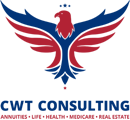
Homeowners Insurance vs. Mortgage Insurance
Becoming a homeowner is one of the most significant milestones you can have in your life. It comes with a myriad of responsibilities and financial considerations. Among the various aspects that new homeowners need to grapple with are homeowners insurance and mortgage insurance. While these two types of insurance may sound similar, they serve distinct purposes and protect against different risks.
Homeowners Insurance
Homeowners insurance is a comprehensive policy that provides a safeguard for your home and belongings from a range of perils. Homeowners insurance is your safety net whether it’s damage caused by natural disasters, theft, or accidents. It typically covers the structure of your home, personal property, liability for injuries on your property, and additional living expenses if you’re temporarily displaced.
Mortgage Insurance
On the other hand, mortgage insurance serves a different function. It is a financial safeguard for the lender rather than the homeowner. When you purchase a home with a down payment of less than 20% of the property’s value, your lender may require you to obtain mortgage insurance. This is because a lower down payment increases the lender’s risk in case you default on the loan. Mortgage insurance provides a layer of protection for the lender, ensuring that they will be compensated if you are unable to fulfill your mortgage obligations.
One key distinction between the two types of insurance lies in their beneficiaries. Homeowners insurance protects you—the homeowner—while mortgage insurance primarily benefits the lender. Homeowners insurance is a proactive choice made by the homeowner to shield their investment, while mortgage insurance is often a requirement imposed by the lender to mitigate their risk.
Coverages
The coverage provided by homeowners insurance is extensive and varies based on the policy and the insurance provider. It generally includes protection against damage caused by fire, windstorms, hail, lightning, theft, and vandalism. Also, liability coverage is crucial if someone is injured on your property, protecting you from potential legal and medical expenses. The flexibility of homeowners insurance allows homeowners to tailor their coverage to meet their specific needs.
Conversely, mortgage insurance is typically a prerequisite for homebuyers with a down payment below the 20% threshold. It can take different forms, such as private mortgage insurance (PMI) for conventional loans or mortgage insurance premium (MIP) for Federal Housing Administration (FHA) loans. The cost of mortgage insurance is often calculated based on the loan-to-value ratio and loan amount. As you pay down your mortgage and build equity in your home, you can cancel or reduce your mortgage insurance.
Understanding the distinctions between homeowners insurance and mortgage insurance is crucial for new and prospective homeowners. While homeowners insurance protects your investment and personal property, it is a tool lenders use to mitigate their risk when extending a mortgage to buyers with smaller down payments.
The journey to homeownership involves carefully considering various financial aspects, including insurance. Homeowners insurance is your shield against the uncertainties that may affect your property and belongings. In contrast, mortgage insurance provides a safety net for lenders when dealing with buyers who have lower down payments. Both types of insurance play essential roles in the homeownership landscape, offering protection and security in different ways. As you embark on this exciting journey, understanding these nuances will empower you to make informed decisions and ensure a secure and well-protected home.
If you want to discuss mortgage insurance benefits, give me a call, and I’ll help write what’s right for you ™!




